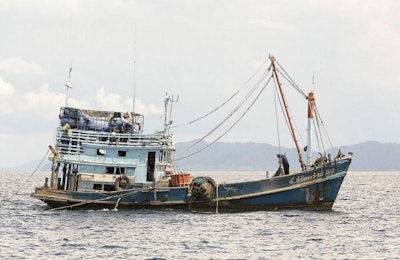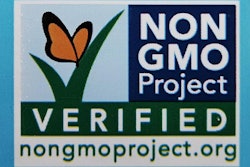
From Petfood Industry:
Nestle S.A. says that, after a yearlong internal investigation, it has found that migrant workers in Thailand are sold or lured under false pretenses and forced to catch and process fish that ends up in its supply chains.
A July article in the New York Times chronicled the lives of several men forced into labor on fishing boats in the South China Sea, off the coast of Thailand. These boats catch fish that are later shipped to the US and other places to be used in pet food and livestock feed.
Some of the fish caught on these boats is sent to a cannery called the Songkla Canning Public Company, which is a subsidiary of Thai Union Frozen Products, Thailand’s largest seafood company. According to US customs documents, more than 28 million pounds of seafood-based cat and dog food in the past year for brands sold in the US, including Iams, Meow Mix and Fancy Feast.
Thai Union Frozen Products says it “will not tolerate any human trafficking or any human rights violation of any kind,” and that it regularly audits its canneries and boats in port to ensure against forced and child labor.
Nestle said at the time that it is working hard to ensure that forced labor is not used to produce its pet food. The company worked with non-governmental organization Verite to “to identify where and why forced labor and human rights abuses may be taking place” in Thailand and southeast Asia.
Nestle later was sued by consumers of Fancy Feast who would not have bought the product if they knew the fish was allegedly harvested using slave labor.
In September, more than 2,000 enslaved fishermen were reported rescued in 2015 as a result of an Associated Press investigation into forced labor on fishing boats in Asia. At that time, at least one multimillion-dollar Thai-Indonesian fishing business had been shut down, at least nine people arrested, and two fishing boats been seized.
The men saved from the forced labor came from Myanmar, Thailand, Cambodia and Laos and have been identified or repatriated. Hundreds more have been quietly returned home, so the companies running the fishing businesses can avoid human trafficking allegations.
Nestle admits Thai seafood suppliers abuse workers, promises to pursue solutions aggressively
WASHINGTON - Impoverished migrant workers in Thailand are sold or lured by false promises and forced to catch and process fish that ends up in global food giant Nestle SA's supply chains. The unusual disclosure comes from Geneva-based Nestle SA itself, which in an act of self-policing announced the conclusions of its yearlong internal investigation on Monday.
Read More at StarTribune - Minneapolis-St Paul
















